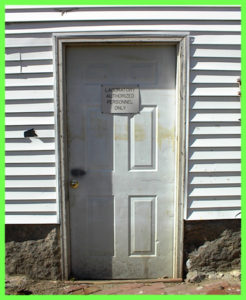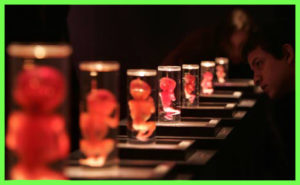It was Thanksgiving. After a morning of running around breakfast, putting on our showers, and gulping down our getting ready, we managed to get everyone packed in the car. Dad drove us around Uxbridge.
Uxbridge was an old mill town perpetually trying to stay an old mill town even as everything around it changed and grew. People lived in places parted by inched lawns nestled side by side, trimmed guardian bushes, and trees out back. Many lived in large houses at the end of winding dirt roads unseen by any neighbor. The only landmarks to their house would be trees and maybe a mailbox, probably camouflaged in green on a wooden post.
The town had the air of things passed. It had different areas, down town, north, south, but no one would refer to any part of Uxbridge by saying so without a slight sneer or bit of sarcasm. Saying Uxbridge had a down town was pointing out a gas station, a liquor store, and the bank and calling it the big center of it all.
Then there was the river and it’s canal that flowed through the town, including the down town, where it cascaded into a waterfall right outside of the liquor store waiting to catch those who would not wait to return to their homes. This valley clutched to the idea of people coming together around the river out of necessity. In more recent times it was a smelly, sewage line through the town with walkways along side it so people could walk their dogs and try to catch sight of the mutated frogs. Sometimes you’d catch a brave soul canoing. You’d stare like a redneck at the NASCAR race track, waiting for the boat to capsize so you could have something to say around the dinner table that night or chat about on the ride to Grandma’s house in this case. You could take turns predicting what terrible diseases they could get. My money’s on leukemia. Chris says cancer. I say leukemia is a type of cancer. Chris says it’s not. We are silenced by a twisted figure in the passenger seat pointing a finger dangerously.
“You better shut up, right now!” threatens my mother. We revert to arguing in glances.
“Would you relax, Ann?” my dad mutters. This only makes mom angrier.
“It’s awful to be saying things like that about people! The river is fine! All sorts of animals live by it. You remember Jeremy? He used to go canoeing in it all the time, and he’s fine. It’s not nice to joke about cancer! Would you rather we still lived in Whitinsville? Or Worcester?”
“Oh, they like it fine here, Ann,” said my dad as patient and cheerfully as he could muster, “They’re just joking around, right?”
“Sure,” me and my brother both intoned, surprised to find ourselves in agreement. I knew that wouldn’t do.
“It’s a bit isolated,” I admitted, daring my mother’s wrath, “We have to drive at least a half hour to get anywhere. There’s nothing to do really.”
“Nothing to do?” my mom asked incredulously, “What do you mean there’s nothing to do? I’m sick of you two always saying you’re bored.”
“I didn’t say anything,” said Chris.
“You just did,” I told Chris.
“Well you can travel where ever you want to and live where ever you want to live when you’re older,” said my dad, the diplomat, “You’ll come to realize that exciting places have bad things about them too.”
“Yeah, but I bet their schools don’t suck as much,” muttered my brother.
“Don’t swear!” screamed my mother, rounding on him with the finger.
“What? I didn’t swear! What swear did I use?”
“Yes, you did. You know you did. You said it sucks.”
Hating to side with my brother, but needing to be honest, I came to his defense, “Mom, sucks isn’t a swear.”
“It’s not a nice word! And I don’t want to hear it again!” yelled my mom resolving the matter, “Besides, you’d belly-ache about school no matter what school you went to.”
“Yeah, school sucks.”
“Christopher!”
“Oh, right. School blows.”
Nobody answered Chris that time. I was amazed my mother fumed silently. She did this very seldom.
Finally my dad pulled over at one of the nature preserves for the river and got out his camera. He wanted to let us run around a little and take some pictures. My dad was a carpenter and car guy, but underneath that with his manual 35mm Minolta in hand, he was an art-tist!
Late at night when he’d had a few beers in him he would take out boxes of pictures he had taken all over the country. He said they used to be in albums and packets, but my mother had unsorted them all on various occasions wanting to make new albums but never finishing. My dad would tell me of an ancient time before I was born.
“Here’s one of my hotrods,” he said, then going on to say what specific car it was and what it had to make it go so much better than other cars, “This one I crashed while I was tripping.”
“What happened to the other ones?” I asked, eyes scanning the shiny red machine.
“Kids. That’s what happened. I met your mom. I sold my hotrods.”
It was a sad tale. I bowed my head in respect, then thought of another question, “What happened to the camera that you took all of these pictures with?”
“Your mom. That’s what happened to it. Every time I take it out to go shooting she takes a bunch of crap pictures that are out of focus and over or under exposed. When I try to explain it to her, she gets mad at me. If I tell her she can’t use the camera, she gets mad at me. So, I keep it hidden away.”
It was a sad tale. My dad would continue on to other pictures.
Now he had a generic automatic Kodak camera that even my mom could take pictures with. You could still always tell which ones my dad took.
“C’mon, let’s get a group shot by the river.”
We all went off next to the Blackstone river, pretended to like each other enough to get closer, closer. Mom smelled like stale cigarettes, my brother like piss.
“Chris, put your hand down and stop being a wise ass. Now everyone smile!”


